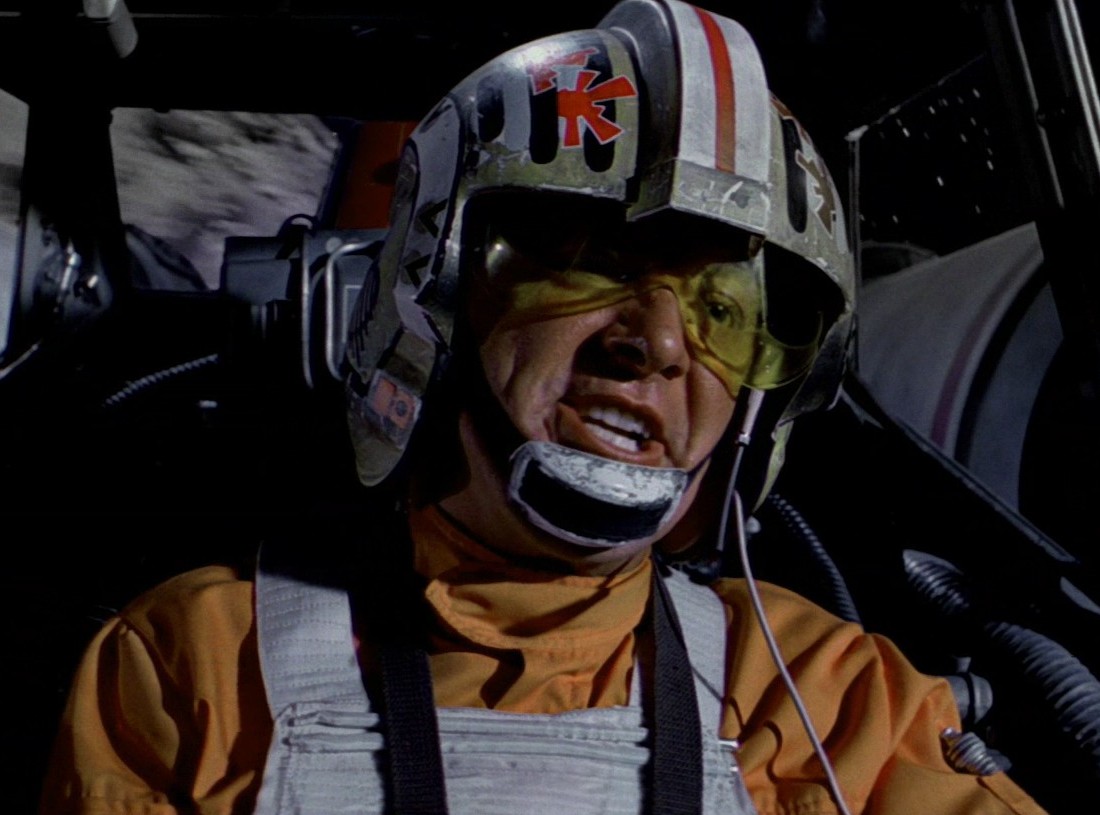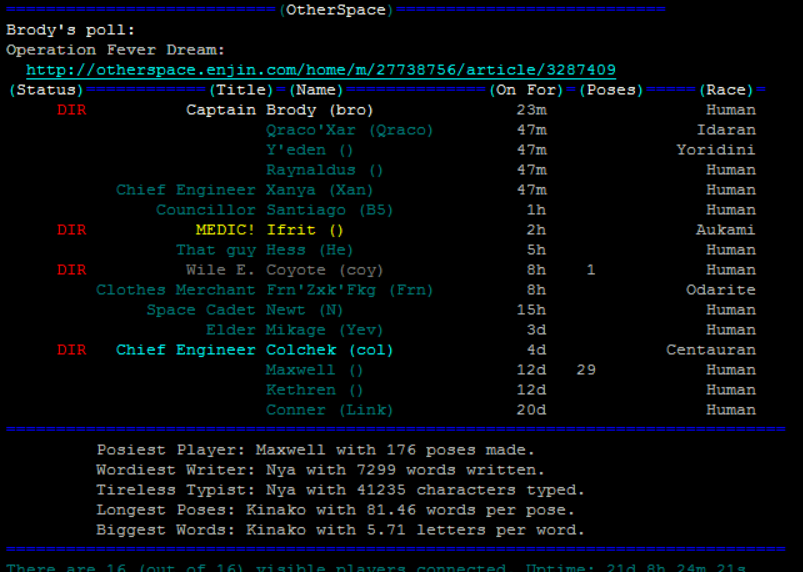Zork was my gateway drug.
Using a relatively basic command parser, this text-only computer adventure game by Infocom allowed a single player to explore a grid of rooms, solving puzzles and gathering treasure, all the while trying to avoid being devoured by a grue in dark chambers.
I had no idea when I first played Zork, back in the 1980s, that my explorations of the Great Underground Empire would lead to my work on OtherSpace.
But Zork and other Infocom games undeniably served as the basic foundation for what would become my pet project for the past 15 years (and counting).
In the mid-1990s, I played a MUD (multi-user dimension) for the first time. It was called Infinity. Like Zork, it was text-based, with a grid of rooms and puzzles to solve. The difference, however, was that I could interact with other players from around the world in the same virtual space.
I enjoyed the diversion while the novelty lasted.
Ultimately, though, I found myself drawn instead to another multi-player text-based game called TOS TrekMUSE. This game, inspired by Star Trek‘s original series with Captain Kirk and Mr. Spock, didn’t have built-in puzzles to solve. It required players to submit a character biography that proved they grasped the theme. It had a coded space system, so players who joined Starfleet might be assigned as crew to virtual starships, such as the Yorktown and the Excelsior.
This environment intrigued me, because it promoted creativity and literacy through real-time writing exercises. Players immersed themselves in character cultures, from Starfleet officers to Klingon warriors to Romulan spies.
It improved over previous experiences in the following ways:
- Enthusiasm for an established theme with an abundance of source material made it relatively easy to get into the adventure. Instead of waiting for the next Star Trek episode each week or between seasons, we could participate as central characters in our own “series.”
- Performances in real-time proved to be a lot like jazz riffing, with players often elevating their game in the presence of more skilled storytellers. We could spend hours in scenes that were sometimes funny and sometimes incredibly intense. It was a mix of fan fiction, live action roleplaying and improvisational theater. And for those of us drawn to such a niche genre within a niche gaming style on the early popular Internet niche, it was supremely addictive.
- Lack of victory conditions, such as reaching max level or getting a high score, meant that gratification came from exploring the universe and interacting with other players. The game never had to end unless a player departed or the server shut down. Bored players could rev up new characters in a different empire for a change of pace.
By June 1998, I felt compelled to develop a collaborative real-time storytelling project of my own. I didn’t want to compete with TOS TrekMUSE or other similar games. So, instead, I worked with a team of volunteers to create a multi-user game – OtherSpace – based on an original space opera theme of my own devising.
In the early years, I was extremely hands-on with the evolving narrative, providing a series of story arcs in a format that was inspired by my appreciation for J. Michael Straczynski’s Babylon 5.
The formula for OtherSpace that seemed to work best, especially in the first few story arcs, was establishing a set period for major storylines to progress, with a clear kickoff, periodic events and then a finale. But where I think the game really showed its stuff was the day-to-day misadventures that players got themselves into, which helped feed an in-game daily news cycle that generated as much copy as some small-town community newspapers.
I’ve messed with that formula over time, occasionally taking the game to dangerous extremes (loading the entire surviving population of the game universe aboard a single colony ship, a la Battlestar Galactica, for example), with varying degrees of success. Some players rejected huge changes in the thematic framework because it drastically altered the vision they had for the story they wanted to tell with their characters. To be quite honest: That’s a way of thinking for which I should’ve had much more respect and consideration.
Changes that I might consider exciting and revolutionary just proved annoying for others, which resulted in hard feelings. On a TV series, actors are paid for their work and have little control over the fate of their characters. With OtherSpace, the people inhabiting these characters are unpaid, doing it for the love of telling stories, and they are as much a part of the creative writing process (if not more so, day to day) as I am.
So, now I’m less focused on whimsical yet radical retoolings of the game universe. Instead, if I want to make something drastically new, I can create a new splinter of the multiverse and invite people to try it out without losing their character due to a narrative shift.
I still run occasional arcs, but my time constraints make it more appealing (and practical) to just create new and interesting characters to throw into the mix from time to time. I leave it to players, as much as possible, to generate more bigger-picture events.
It’s a long way from standing near the mailbox outside the white house in Zork. In OtherSpace, players can use unlimited vocabulary to interact and share stories as they explore a virtual space that they can help develop – from starships to planets to entire universes.
Now I need to get more creative writers hooked.





